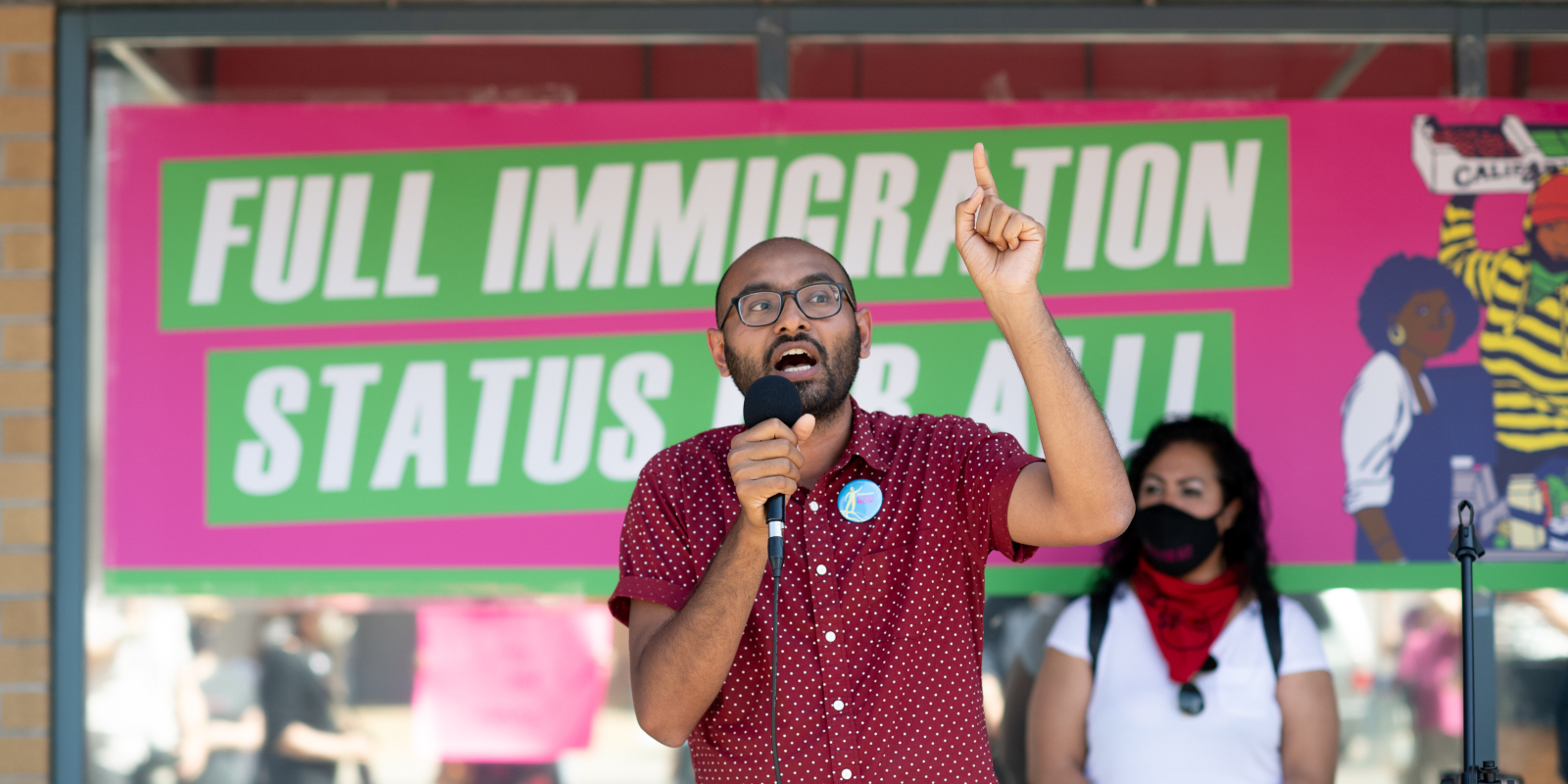For decades, the annual announcement of Canada’s expected immigration level for the upcoming year was one of the most boring press releases in Ottawa.
Successive governments since the early 1990s gently raised the number each year, allowing a few more immigrants into the country but keeping the rate, as a percentage of Canada’s population, at about 0.8 percent.
In that time Canada has enjoyed a remarkable pro-immigration consensus among its major political parties. Even as populist insurgents gained steam across the Western world, often with aggressive anti-immigration messages, Canada seemed like a calm oasis of political stability.
There’s no better proof of this than the populist People’s Party of Canada attempting to run a national campaign opposed to “mass immigration” in the 2019 general election and ending up with 1.6 percent of the vote. The party tripled its vote count in the next election by running against COVID-19 restrictions.
All of a sudden, though, mainstream voices are arguing that Canada should consider allowing fewer immigrants each year and louder voices are arguing that the country should allow many, many more.
They are treading carefully. Canada’s recent immigration debate, if there was one, has been marked by the stereotypical politeness the country is known for and even as the boundaries are pushed, it’s been in hushed tones by academics and economists.
Advocates on both sides admit there’s no guarantee that it stays this way, though.
Shortly after ringing in the new year, Canada celebrated a record by welcoming 431,645 new permanent residents to the country in 2022. The previous record of 401,000 new Canadians was set the previous year.
The recent totals are such a sea change that researchers at Statistics Canada had to go back to 1913 to find the previous record-setting year before 2021.
In a press release celebrating the achievement, Immigration Minister Sean Fraser reminded Canadians that “newcomers play an essential role in filling labour shortages,” among other benefits.
The government still makes the case for a multicultural Canada, but the argument for more immigration has increasingly become an economic one. As the pandemic wound down, a labour shortage seized the country and the government saw immigration as a way to fill the jobs that Canadians weren’t filling.
In a downtown Toronto conference centre on Monday, a similar case was made.
The event was hosted by the Century Initiative, a charitable organization driven by the goal to grow Canada’s population to 100 million people by the year 2100. The organization was co-founded by Dominic Barton, the former ambassador to China, and the event hosted current and former Liberal cabinet ministers as guests.
Most of the speakers at the conference took for granted that Canada should be obsessively trying to grow its population and keynote speaker, the bestselling author Parag Khanna, explained that developed countries should be engaged in a “borderless war for young talent.”
Khanna explained that based on current trends the world population will peak around 2037, which in demographic terms is “tomorrow.” That moment will spark a zero-sum battle for migrants across the world, he said.
Other speakers warned of the dire consequences for Canada as its population ages and birth rates plummet.
Jean Boivin, the head of BlackRock Investment Institute, warned ominously that at the current trajectory of aging in Canada, Canadians would have to suffer a 20 percent decline in living standards without a boost to immigration.
The solution to these problems is the Century Initiative’s primary focus: hiking immigration levels to the point where Canada has 100 million people by the end of the current century.
It might be a tough sell, especially in the midst of an ongoing housing crisis and health-care backlogs that have blared out from news headlines for years.
Some speakers anticipated these objections. Lisa Lalande, the CEO of the Century Initiative, kicked off the conference by arguing that higher levels of immigration are only possible if these issues are addressed. Otherwise, general support for immigration will decline in the country.
Federal Housing Minister Ahmed Hussen was invited to the conference for a ten-minute interview with a Globe and Mail reporter, but he appeared virtually only for a few seconds before the screen flickered and died. A few minutes of frantic tech support was ineffective and the interview was cancelled.

On the other side of the debate are people who are quietly and cautiously making the case that the government’s immigration targets are either too high or that immigration won’t be a cure-all for Canada’s problems.
In an interview with The Hub on Tuesday, Mikal Skuterud, an economics professor at the University of Waterloo who specializes in labour markets and immigration, said advocates for higher immigration focus too much on the total size of the economy, rather than GDP per capita, which he says is a rough way of calculating Canadian living standards.
It’s undeniable that bringing in more people will boost Canada’s GDP, but it’s extremely hard to boost GDP per capita through immigration, he said. The United States is the one country that may be able to accomplish it because they genuinely attract the best talent from around the world.
But rather than a global “war for young talent,” the policies endorsed by advocate groups like the Century Initiative are more likely to bring low-skilled immigrants to Canada who may be saddled with lower living standards than the people who came here before them, he said.
Skuterud believes that the recent Canadian consensus on immigration comes in large part from accepting high-skilled immigrants who keep living standards high. This system also leads to lower levels of inequality.
“In this country, it’s a system that you want chugging along in the background, very effectively, with high immigration rates. And when I say high, 0.8 percent is high,” said Skuterud.
Skuterud agrees that something has changed in the debate, but he hasn’t experienced any blowback for arguing a position that has historically been taboo in Canada. He said he has been pleasantly surprised about the quality of the debate, even in the more rough and tumble venues like Twitter.
And as the immigration debate opens up, it hasn’t attracted any populist or anti-immigrant sentiment so far.
The British-based Canadian sociologist Eric Kaufmann argues that Canada has benefited from an elite “taboo” about opposition to high immigration levels, but he has argued for years that it can’t last forever.
Kaufmann argues that politicians should learn to talk about immigration in a way that allows these points of view to enter the debate, or risk letting a populist dam burst like it did in the United States when Donald Trump made his unlikely bid for president.
Skuterud worries that if inequality increases, at least partly due to immigration policies, it could endanger the Canadian consensus on immigration.
“This push towards just filling job vacancies (with immigration) has two effects. One, it lowers average living standards. And two, and probably what worries me more, it increases inequality. And that’s not good for public support for immigration,” said Skuterud.
Recommended for You

Rudyard Griffiths and Sean Speer: The fiscal hangover from the One Big Beautiful Bill hits Canada

Lucy Hargreaves: Canada needs builders, not bystanders

Ginny Roth: How vacant liberal nationalism left Canada worse off than George Grant even imagined

Need to Know: Mark Carney’s digital services tax disaster



